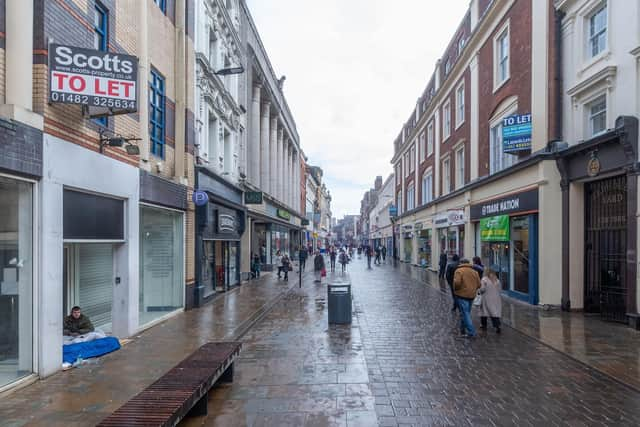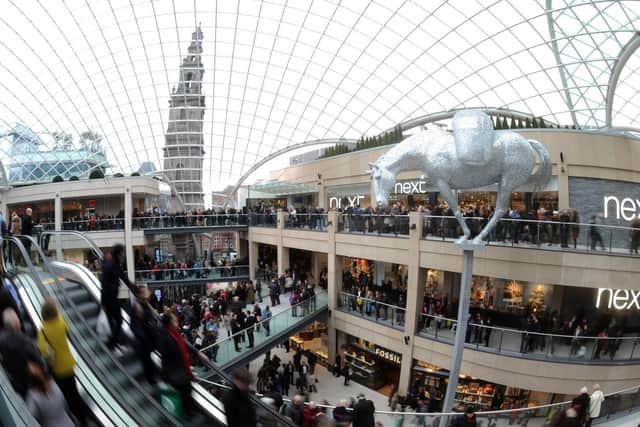Pandemic will lead to a 'lost generation' of managers amid warning town and city centres will change forever
The seismic effect of the coronavirus pandemic has has a profound economic impact alongside the devastating health crisis which has claimed more than 125,000 lives.
Catherine Shuttleworth, the chief executive of the Yorkshire marketing agency, Savvy, said that young people had now lost out on months of schooling, endured botched examination results and been denied the opportunity to participate in work experience during the past year, and argued that this would limit their opportunities when they enter the workforce.
Advertisement
Hide AdAdvertisement
Hide AdMs Shuttleworth said that these factors would mean thousands of young people who, as well as suffering from diminished skills and qualifications, would also now lack crucial work-related experiences and competencies which would impact on businesses in the long term when they looked to find the next generation of managers and leaders.


And she, along with a leading retail expert at professional services giant KPMG, warned that the huge toll of the pandemic on shops would mean that Britain’s town and city centres would radically change in their appearance as a result of Covid-19 owing to a sharp decline in physical retail outlets.
Ms Shuttleworth said: “We have a generation of young people who have had that range of opportunities between the age of 16 and 18 taken away from them, which does worry me. We were already in Yorkshire behind on education before the pandemic.
“Many entering the workplace this last year will have had no social connections other than online.
Advertisement
Hide AdAdvertisement
Hide Ad“Young people who would normally be in an office where they would absorb a load of stuff. You learn a lot through seeing, not just doing.


“We will have a big problem in the next five years when we are looking for the next generation of managers.
“It won’t show for a bit. But in five or six years’ time we will suddenly be saying: ‘Where is the talent?’.”
Her comments come after another torrid week for the high street.
Advertisement
Hide AdAdvertisement
Hide AdConfectioner Thorntons announced it was to close all of its 61 stores with the potential loss of more than 600 jobs.


Meanwhile, John Lewis, once regarded as the bellwether of the retail sector, confirmed it would be announcing store closures later in the year.
Close to a thousand shops closed in Yorkshire during 2020, part of 10,000 outlets nationally, with staples of the high street such as Topshop and Debenhams unable to survive the pandemic lockdowns.
Ms Shuttleworth warned that the closure of these stores was “the tip of the iceberg” of what was likely to happen to retail once Government support schemes began to be rolled back.
Advertisement
Hide AdAdvertisement
Hide Ad“Leeds is one of the premier shopping distinctions in the UK,” she said.
“But when we walk up Briggate on April 12 (the date when non-essential retail is planned to re-open), there will be no Top Shop, no Debenhams.
“Even in the Premier League of shopping we are going to see massive gaps that cannot be filled.
“In the short term, the damage will be awful. Longer term, there will be partnerships with developers in residential schemes in particular to remodel what town and city centres look like.”
Advertisement
Hide AdAdvertisement
Hide AdResearch carried out by Savvy showed that 25 per cent of shoppers would be looking to shop locally in the future, and that the era of large retail stores looked to be increasingly numbered.
“We are a nation of shopkeepers,” said Ms Shuttleworth. “It will be smaller shops rather than large ones.”
Her views were echoed by Sue Richardson, KPMG’s retail partner in the north who told The Yorkshire Post that the pandemic had had a profound impact.
“City centres will look very different,” she said. “I would expect there to be more mixed use in city centres rather than designated retail areas and residential areas.
Advertisement
Hide AdAdvertisement
Hide Ad“There will be more interplay and interconnectivity between those things. Certainly less space given over to retail is inevitable.”
Ms Richardson added that the expected frequency of traditionally office-based staff choosing to work from home in the future would take its toll on retail in town and city centres, but could boost suburbs and market towns.
Talking about how much retail spend came from office workers on lunch breaks, she said: “That footfall will almost certainly decline. Just one day a week from home alone is a 20 per cent reduction in footfall.
“With that comes a shift in location. One of the categories of retail that have benefited is local market towns.”